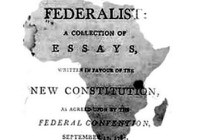Free online course with Prof Jan Erk at Leiden University
In this political science course students will learn about the twin concepts of federalism and decentralisation. They will develop an understanding of the core ideas that federalism and decentralisation rest on, and study the building blocks that make them both work. Following a general overview of both federalism and decentralisation, we will examine a number of case-studies from Africa where federalism and decentralisation have been changing the continent’s political landscape in the last twenty years, coinciding with unprecedented levels of economic growth.
During the course’s duration of 6 modules you will be provided with an explanation of the basic concepts and themes in the study of federalism and decentralisation and will be given an overall survey of the federal experiences around the globe – particularly in the developing world. It is especially in the African context that the course will seek to expose some of the important issues around federalism and decentralisation.
By the end of the course, students will have acquired a general knowledge of federalism/decentralisation and additional empirical knowledge of a number of African cases. Upon completion you will also acquire the ability to unpack and understand a variety of potential consequences of federalism/decentralization reforms in the developing world.
Depending on your interests and the time you are able to put in, there are two tracks you can follow: Basic and Advanced. Both tracks follow the same 6-module structure which concludes each module with a short quiz aimed to evaluate the module's learning goals. The course ends with a final exam.
Please follow the link below to get more information:

